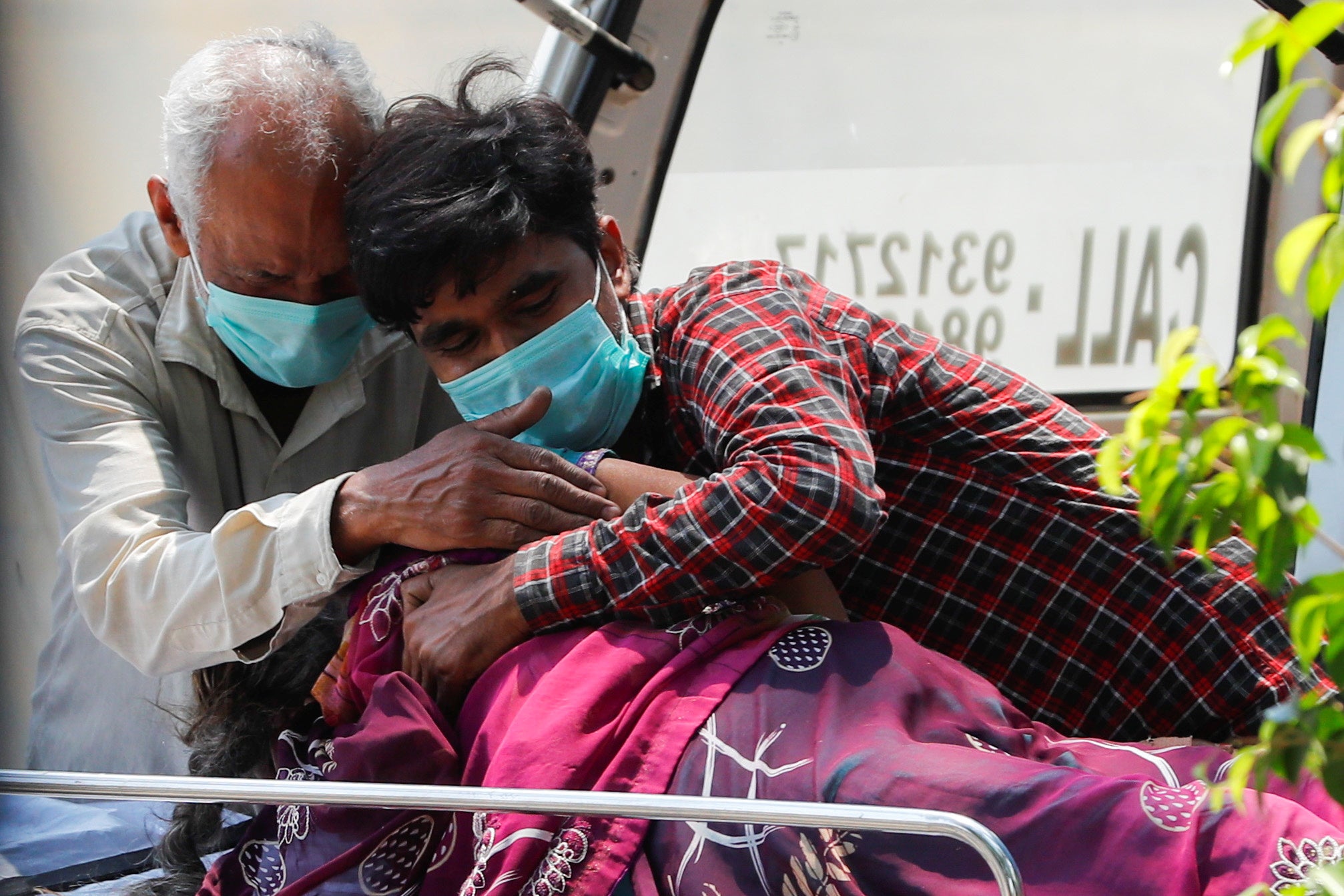Helping India fight a devastating wave of Covid is in the whole world’s interest
Editorial: Without a global effort to rapidly refocus resources on the shifting centres of major outbreaks, the world will find it takes even longer than feared to return to normality

If the warning so often issued by public health officials, that “no one is safe until everyone is safe”, is remotely true, then the rapidly worsening situation in India means that the pandemic is far from over, and a devastating global third wave of Covid is a real possibility. When a nation of 1.4 billion people becomes a major global hub for coronavirus infections, reproduction and mutation, that is a danger not only for the subcontinent but for the whole world. What has been happening there recently, only days after the lockdown was relaxed prematurely, is yet another example of the dangers of political hubris in a time of plague.
The immediate task is to assist the Indian authorities. From a position of a relatively controlled epidemic, India has descended to a state where its hospitals have been overwhelmed. People have been turned away, to die. An over-hasty lifting of lockdown by prime minister Narendra Modi and the emergence of more dangerous mutations seems to have been the driving factors. The lines plotted on the graphs of infections and mortalities have turned near-vertical. Fresh, unwelcome, incredible records are being set – 349,691 more cases detected in the latest 24-hour period, and another 2,767 lives lost. Given that the hospitals are full and many patients suffer unrecorded at home, the figures are a gross underestimate. The true scale of the impact on India may never be known, though it is plainly grievous. In a globalised world, even one with lockdowns and travel bans, what happens in India, as with Brazil or South Africa, is not going to stay there forever. Sooner or later the “variants of concern” will get through, as indeed they have.
So India, a major manufacturer of vaccines and their precursors, must be allowed to keep more of them for its urgent domestic needs, which are greater than anything in the west. Leaving geopolitics aside, China, America and Russia could do more to send vaccines too, acts of enlightened self-interest that, indeed, might foster goodwill and serve longer-term national interests. India needs more help in breaking the link between infection and hospitalisation and death, with more of the treatments and techniques developed by clinical staffs the world over in the last year. The Indian army should be called on to help build the kind of “Nightingale” emergency hospitals that had to be established in Britain, and the authorities in the US, EU and Britain can assist with this. If the armed forces of great powers can establish huge military encampments to prepare for invasions then they can do so to fight the pandemic and save lives. In fairness, they seem anxious to do their bit everywhere in the world.
Quantities of plentiful and cheap drugs such as dexamethasone will also help save lives, if they can be delivered and distributed, but it is clinical-grade oxygen and ventilators that are the most valuable of commodities right now. Those nations that have a surplus left over from their own peaks of infection could well send them to the worst affected states in India. Again, it is in the enlightened self-interest of all to suppress the virus wherever it starts to take a grip on a population.
Without such a global effort to rapidly refocus resources on the shifting centres of major outbreaks – Manaus, South Africa, Maharashtra – then the world will find it takes even longer than feared to return to normality. Bill Gates, optimistic as ever, thinks it can be achieved through mass vaccination by the end of 2022; but that depends. New vaccine-resistant variants are the principal threat to this, and there is a race against time to secure herd immunity through vaccination before new variants can take a hold. Experience in India and Brazil has been depressing, but much of Africa is in a potentially far more vulnerale position. Thus far the continent has been partly protected by its demographics – Covid tends to attack older folk, but that trait in the virus, so unexpected as it emerged last year, may not persist for ever as the virus evolves.
Much-derided as it has been, the World Health Organisation has a huge coordinating role to play in the effort in places such as Maharashtra state, as do India’s allies and friendly and not-so friendly neighbours. The scale of the task though, in this populous nation, is probably too great even for a determined international effort. The spread of the virus infection needs to be brought down and kept down, and, as we have seen time and again, that means the renewed lockdown has to be kept in place for as long as is necessary, as well as enforcing simple measures on hygiene, masks and social distancing. The problem has probably always been that too many Indians cannot afford to self-isolate even when they wish to, and that public understanding of the danger has been undermined by political complacency – a phenomenon also observed last year in America and in Britain.
Placing India on the “red list” for quarantine is necessary, but also one of the less effective ways to try to keep the “Indian variant” out of Britain, with evidence it has also made it through such barriers. It would be much better to fight the virus “at source”.



Join our commenting forum
Join thought-provoking conversations, follow other Independent readers and see their replies
Comments